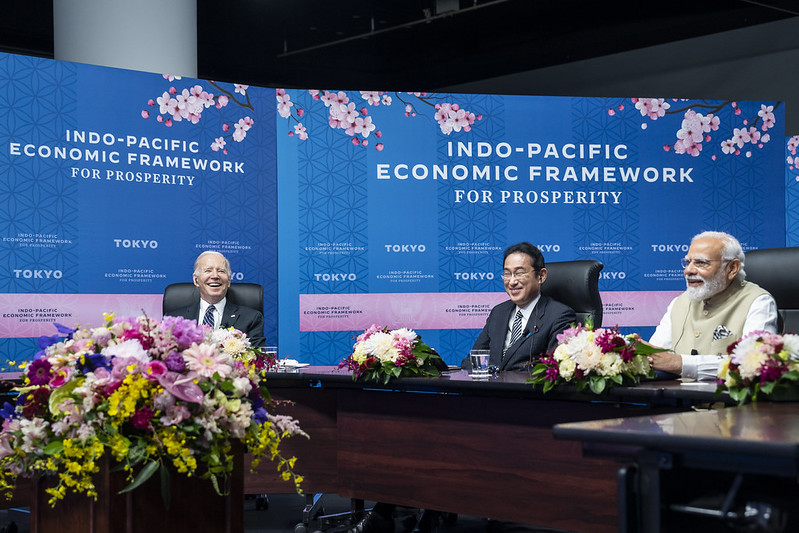The Asia-Pacific Economic Cooperation (APEC) summit in San Francisco begins next week. And the United States wants to show that progress is being made in negotiating a U.S.-initiated trade framework called IPEF (Indo-Pacific Economic Framework for Prosperity).
Reuters news agency reported that Such intentions of the United States It may not have much effect. Because some countries reserve agreements with the United States. on environmental and labor issues at this time, according to a Reuters report
Wendy Cutler, head of the Asia Society Policy Center in Washington and a former US trade negotiator, said the United States has a significant opportunity to “It shows that the United States We’re taking more active action through APEC and IPEF and declaring that we’re back in Asia. and will continue to be a close economic partner ” with the region.
Under former President Donald Trump’s administration, the American government withdrew from the TPP (Trans-Pacific Partnership) free trade framework, and the current administration of President Joe Biden launched IPEF.
Compared to TPP, which aims to reduce trade barriers, IPEF is a more specific negotiation framework. Focusing on cooperation in 4 areas, including trade Worldwide production and transportation lines, or supply chains, reducing carbon dioxide. Fighting corruption and tax evasion
There are 14 countries participating in the IPEF trade framework negotiations, including the United States, Australia, New Zealand, Brunei, Fiji, India, Indonesia, Japan, Malaysia, the Philippines, Singapore, South Korea, Vietnam and Thailand. India and Fiji are not in APEC but participate in the IPEF trade framework discussions.
Dialogue partners have now agreed on the full text of the agreement reached in May. only in strengthening supply chains
U.S. Department of Commerce Take the lead role in negotiations Carbon dioxide reduction and fighting corruption and tax evasion. It is expected that there will be a clear conclusion. And Reuters says there will likely be a statement on these two topics next week.
However, three sources told Reuters that the IPEF pillar on trade was a difficult topic to reach consensus on. Many countries are still unwilling to accept the United States’ demands. or request additional time to consider matters of labor and environmental standards.
Moreover, negotiations on digital trade standards almost stalled when the United States Changing stance on e-commerce issues
Originally, the Office of the United States Trade Representative (USTR) wanted to protect the freedom of information across countries. Including wanting to prohibit the setting of national rules regarding the preparation of area-specific information. and software code inspection
But recently, USTR doesn’t want to push the issue. Giving reasons that the US Congress There should be a more active legislative role against big tech companies.
Wendy Cutler says trade negotiations take time Even though there are proposals to open markets to other countries, she said it is difficult in the case of the United States, which wants other countries to open markets for their products. Because we must show those countries the benefits that will occur.
Reuters reports that on Thursday A group of moderate Democrats urged President Biden in a letter to upgrade IPEF to negotiations that would lead to open markets.
The New Democrat Coalition said in the letter: “We must pursue a more dynamic trade agenda in the critical Indo-Pacific region. And we urge the Biden administration to reach an agreement that will promote U.S. global leadership. and create significant American jobs and new businesses.”
- Source: VOA News, Reuters


